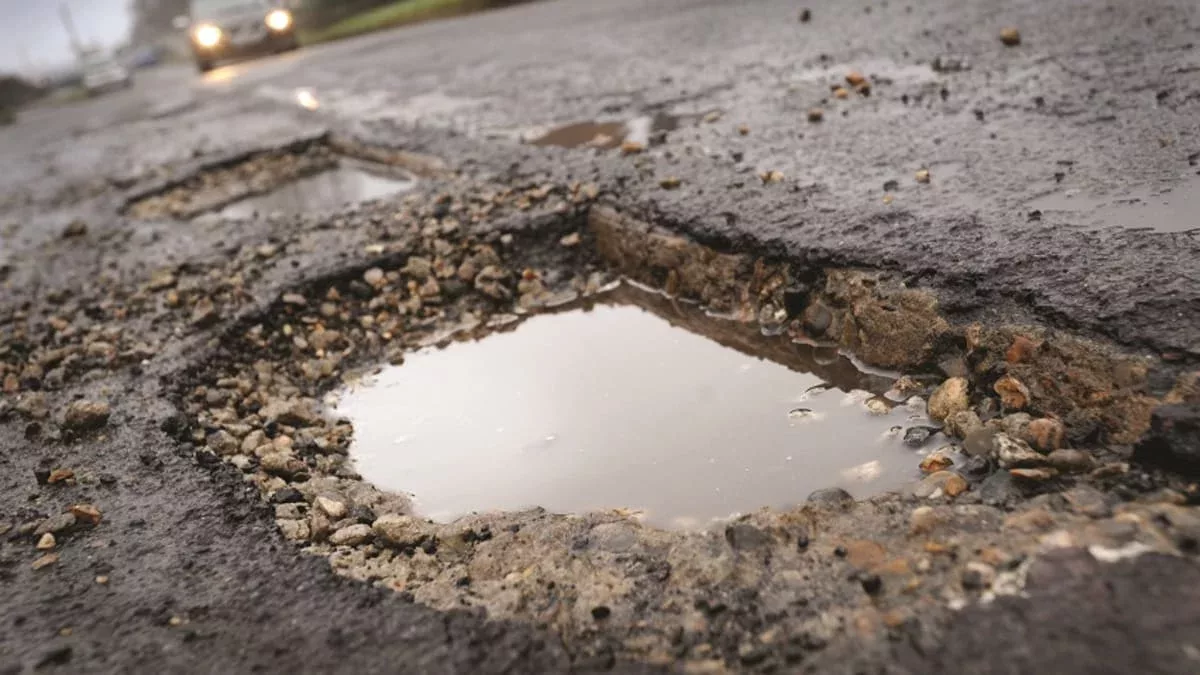There’s a warning millions of rural motorists face seeing major road projects and maintenance schemes curtailed next year, with councils in county areas grappling with rising inflation and a ‘chasm’ in funding between their areas and cities.
A new survey from the County Councils Network suggests 85% of its local authorities plan to reduce roads maintenance next year due to rising costs, whilst scrapping or reviewing major highways projects.
Councils in county areas say they have been left with no choice but to propose reducing investment due to high inflation and “historic underfunding”. They are calling on the Chancellor to intervene at the March Budget and provide £500m of new capital funding following a harsh winter which has increased road defects.
Research by CCN shows that inflation is set add at least £514m to roads and infrastructure budgets in county areas this year and next, with councils saying construction and contractor costs have risen by up to 25% on average for highways projects. This has left them in a position whereby sums committed for road improvements ‘no longer stretch as far as they could’, with many of these projects signed off a number of years ago.
County leaders say roads in shire counties are the ‘arteries of England’s economy’ and council investment plans are vital to supporting local growth. But they say these inflationary pressures are compounding an already ‘unfair’ situation, where councils in county and rural areas are able to spend less than half the amount of urban areas on road maintenance and major infrastructure projects across their road networks.
New analysis by CCN reveals that the 36 councils in county areas this year plan to spend on average just £26,000 per mile on road repairs, pothole filling, and constructing new junctions and networks. In contrast councils in London plan to spend £67,000 per mile, urban metropolitan councils £50,000, and local authorities in England’s eight ‘core cities’ £66,000 per mile.
Councils say the ‘chasm’ in what councils can spend has been made worse by government funding decisions in recent years.
“Despite a pledge in the Conservative Manifesto to invest an additional £500m in road improvements in each year of this Parliament, councils’ capital funding has been £400m lower in each of the last two years compared to 2021. With councils in rural areas receiving 70% of this funding, these local authorities have been hardest hit,” the CCN says.
It lists some of the significant road projects reviewed or reconsidered over the last few months in county areas:
- Parts of the £67m North Devon Link Road have not been taken forward due to contractor costs rising by 25% since the project was approved in 2019. Parts of the scheme not being taken forward include improvement works at six junctions, a mile-long overtaking lane, as well as a footbridge.
- Proposals for a new bypass on the A39 between the M5 and Clarks Village and Somerset have been cut by the Department for Transport. The project, which would have taken 95% of traffic away from two Somerset towns was given ‘in principle’ approval in 2020.
- The £78m A30 to St Austell Link Road in Cornwall has seen its cost has increase beyond the available budget and the funding award was ‘capped’ to the value set on the outline business case several years earlier. The council has had to remove some elements of the scheme, including traffic calming in nearby villages, but is committed to renewing these if fresh funding becomes available.
- Cheshire East Council has been forced to pause development work on the proposed Congleton Greenway Project, which would have provided cycle and walking connectivity from new housing developments after costs escalated from £1.8m when the scheme was approved to almost £5m today.
Cllr Tim Oliver, Chairman of the County Councils Network and Leader of Surrey County Council, said:
“We know that the state of roads and congestion are two of the biggest issues for local residents, which is why councils in county areas have put forward ambitious highways resurfacing and major improvement works, but we are in a very different reality to when many of those plans were signed off.
“With inflation running at over 9% for close to a year, the sums committed for these projects no longer stretch as far as they could, leading to difficult decisions on road improvements. In addition, councils in major cities are able to spend twice as much on road repairs and improvements compared to rural counties. This situation has been compounded by a failure to restore funding levels to those in 2021, despite government manifesto commitments.
“We understand the public finances are tight, but county roads are the arteries of England’s economy and council investment plans are vital to supporting local growth. This is why we are calling on the Chancellor to provide at least £500m additional funding for roads maintenance. This will allow us to get shovels in the ground for deferred schemes to help get our economy moving.”
(File picture – RAC)





















